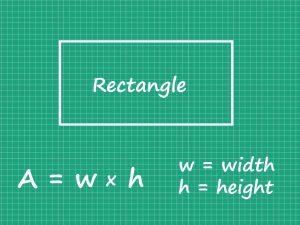Shapes:
We come across different shapes around us in our day-to-day life. So, let us observe the below figure and recall the shapes:
Name the different shapes in the picture given below.

Answer:

Identify the different shapes and count them.

Answer:
- Number of circles: 4
- Number of triangles: 5
- Number of squares: 3
- Total number of shapes: 12
2-D Shapes:
- Triangle
- Quadrilateral
- Pentagon
- Hexagon
Triangle & Its Attributes:
A triangle has 3 sides and 3 vertices.

Some more different types of triangles are given below:

Not Triangles:
These are the shapes that are not triangles.

Quadrilateral & Its Attributes:
A quadrilateral has 4 sides and 4 vertices.

Some more different types of quadrilaterals are given below:

Not Quadrilaterals:
These are the shapes that are not quadrilaterals.

Pentagon, Hexagon & Their Attributes:
Pentagon & Its Attributes:
- It has 5 sides.
- It has 5 vertices.

Hexagon & Its Attributes:
- It has 6 sides.
- It has 6 vertices.
Not pentagons and not hexagons:
Below are the shapes which are not pentagons and hexagons.

Not pentagons and not hexagons:
Below are the shapes that are not pentagons and hexagons.

Exercise:
- Name all the shapes used in the picture.

2. Observe the picture and find the number of circles, triangles, quadrilaterals, and pentagons.

3. Find the total number of triangles in the picture.

4. Name each shape. Find the number of sides and vertices.

5. Identify the shape that is not a hexagon.

6. Connect all the dots to make shapes that have vertices. Name the shapes that you make.

7. Sarah connects all the dots to make a shape. Name the shape that she makes.

8. Find the number of triangles from the tangram below.

9. Juan drew a triangle and a hexagon. How many vertices did he draw in all?
10. Find the number of triangles from the tangram below.

Concept Map:

What We Have Learned
- Recognizing different shapes.
- Sorting shapes into categories of the triangle, quadrilateral, pentagon, and hexagon based on their attributes.

Related topics
Addition and Multiplication Using Counters & Bar-Diagrams
Introduction: We can find the solution to the word problem by solving it. Here, in this topic, we can use 3 methods to find the solution. 1. Add using counters 2. Use factors to get the product 3. Write equations to find the unknown. Addition Equation: 8+8+8 =? Multiplication equation: 3×8=? Example 1: Andrew has […]
Read More >>Dilation: Definitions, Characteristics, and Similarities
Understanding Dilation A dilation is a transformation that produces an image that is of the same shape and different sizes. Dilation that creates a larger image is called enlargement. Describing Dilation Dilation of Scale Factor 2 The following figure undergoes a dilation with a scale factor of 2 giving an image A’ (2, 4), B’ […]
Read More >>How to Write and Interpret Numerical Expressions?
Write numerical expressions What is the Meaning of Numerical Expression? A numerical expression is a combination of numbers and integers using basic operations such as addition, subtraction, multiplication, or division. The word PEMDAS stands for: P → Parentheses E → Exponents M → Multiplication D → Division A → Addition S → Subtraction Some examples […]
Read More >>System of Linear Inequalities and Equations
Introduction: Systems of Linear Inequalities: A system of linear inequalities is a set of two or more linear inequalities in the same variables. The following example illustrates this, y < x + 2…………..Inequality 1 y ≥ 2x − 1…………Inequality 2 Solution of a System of Linear Inequalities: A solution of a system of linear inequalities […]
Read More >>Other topics







Comments: